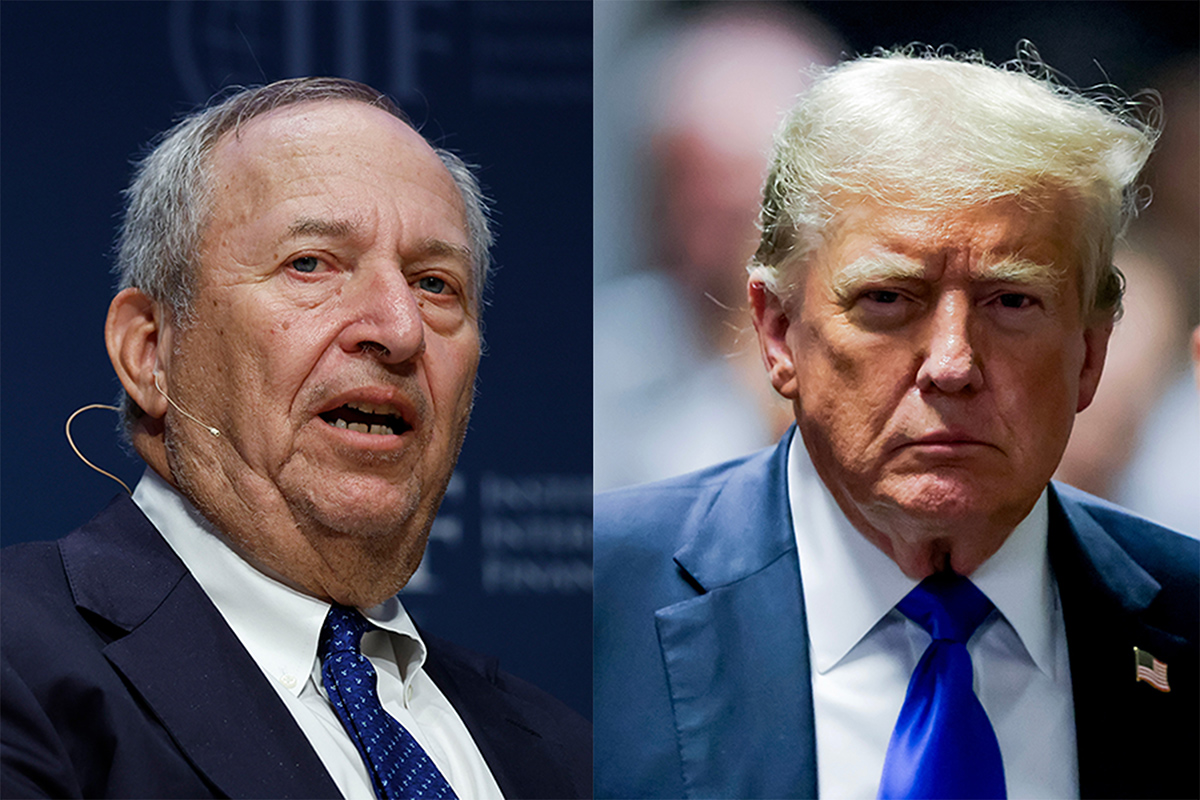Summers, Trump Swap Arguments About Proposal for Widespread Tariffs
Larry Summers: “I don’t see the evidence for his belief. When you launch attacks and others respond, the whole thing can spiral.”

Former Treasury Secretary Lawrence Summers and Donald Trump volleyed opposing views this week about the former president’s proposal to impose a 10 percent tariff on all imports.
Summers, appearing Friday on Bloomberg Television’s Wall Street Week, rebutted Trump’s latest claims that such duties would provide economic and geopolitical gains for the United States. “I don’t see the evidence for his belief,” Summers said. “If they are a tool of power and intimidation, it seems to me they should be used much more selectively than he has proposed.
“When you launch attacks and others respond, the whole thing can spiral,” he added.
The comments mark the latest development in the back-and-forth between the economist and the presumed Republican nominee for the White House.
Last week, Summers said Trump’s tariff plan is a prescription for stagflation—a scenario of high inflation combined with low economic growth. Trump responded to those comments Thursday, praising the benefits of tariffs on the All-In podcast.
“Well, let me say that I respect Larry Summers a lot. He’s been right about a lot of things,” Trump said. “I happen to be a big believer in tariffs because I think tariffs give you two things. They give you economic gain, but they also give you a political game if a country is out of control.
“With tariffs, it gives you a tremendous power,” he said.
Trump also said that his proposed policy is crucial to keeping the dollar as the world’s principal reserve currency, indicating his intention to use tariffs to punish countries that abandoned their currency’s peg to the dollar.
Summers agreed that selective tariffs—like to combat dumping of imports—make sense, but called across-the-board tariffs for long periods of time “radical.”
Summers was also asked about the state of the economy, following reports showing a plunge in home construction and tepid retail sales. He said it’s an open question whether the recent run of softer economic data signals the start of a more profound slowdown.
“My guess is this is still in the world of month-to-month fluctuations, with an underlying picture around continuing growth,” he said. “But you can’t be sure, and I’d certainly agree that the data has been more on the slow side for the last month or two than on the rapid side.”
Copyright 2024 Bloomberg. All rights reserved. This material may not be published, broadcast, rewritten, or redistributed.


